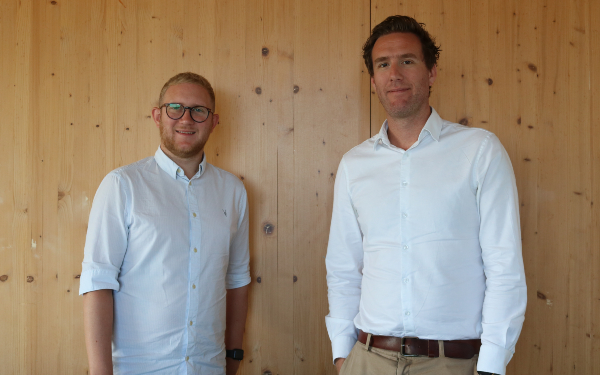Four years ago, Helen’s son was diagnosed with dyslexia.
Then working full-time as a social worker for South Gloucestershire Council, she now had to start taking him for additional tuition to support him further.
For some employers, this would have been a problem. But not at South Gloucestershire.
Helen agreed a nine-day fortnight with her manager, which enabled her to take her son to his tuition on her non-working day.
‘It helps family life continue’
“When you have kids there are dentist appointments, doctors’ appointments that don’t fit the working week,” she adds. “[My nine-day fortnight] helps family life continue.”
Service manager for localities, Jean-Paul, had a similar experience when he was a social worker.
“Neither me nor my wife could work part-time, and we didn’t want our daughter going to nursery five days a week, so I requested to do five days in four. It was very much, ‘so long as you get your job done and you show you can manage it, we trust you’.”
Flexibility – in the form of working from home, hybrid working and remote meetings or visits – has been injected into many social work workplaces in the past two years.
However, as illustrated by Helen’s and Jean-Paul’s stories, nine-day fortnights and four-day weeks were common across South Gloucestershire children’s services before the pandemic.
Getting the best out of your staff
It reflects a management culture that prioritises getting the best out of staff, says Helen.
“They appreciate having your workers in 8.30-5, Monday to Friday, doesn’t get the best out of them. More flexible working means you may get the same amount of work, but people are more satisfied,” she adds.
It is an approach she intends to replicate following her recent promotion to team manager of a locality team, which followed a stint as a consultant social worker responsible for four students from fast-track training programme Frontline.
“Being more flexible about it is definitely more beneficial – both about how the workers are feeling and the amount of work that gets done,” Helen says.
It has also been Jean-Paul’s approach since he became a team manager and, more recently, service manager.
“As a team manager, some of my team had children and some wanted to work four days a week. That was something we were able to put into place,” he says. “If we can make it work, we’ll make it work.”
An ethos of retention
The result, he says, is better retention – which is critical to good social work.
“My ethos, from when I started management, has always been about retention of staff. If you have stable, secure management then your social workers feel safe and secure, which has a positive impact on the children we work with, which reduces the risk that they will have changes of social worker.”
While the pandemic was not the genesis of flexible working in children’s social work in South Gloucestershire, it has definitely accelerated and developed its use.
The council has prioritised children’s social workers for access to offices since the shift to home, and then hybrid, working, empowering them to manage their diaries, and movements, in a way that best suits them.
Says Jean-Paul: “With social workers, your diary is your job, your visits are prioritised. If my team just have meetings or online meetings, they might work from home and if they have a day of visits they will use the office as a base. Any social worker is in charge of their time. We support that as long as we are working in the best way to help young people and families. We also support teams to have protected time each day to complete their paperwork or whatever tasks are needed.”
Sarah, who is doing her assessed and supported year in employment in a locality team, has seen the benefits, both for herself and her colleagues.
“A lot of our meetings are still online, or hybrid, with some people in person and some people online,” she says. “I think it’s much easier, you get more people participating in meetings. You get more professionals working with you. I also like being out and about – so if I want to be in the office I can be in the office.
‘We can work anywhere’
Callum, who is a senior social worker in the transitions to independence team, agrees: “The pandemic has highlighted that we can work anywhere. I now live nearly an hour away from where I work so if I’m going on visits, I need a base. Management worked really hard to enable me to drop into the office for that.”
The flexibility is also better for children and families.
Helen says more flexible hours makes it easier for practitioners to visit families outside of conventional working hours.
“We’ve looked at doing visits in the evenings and we sometimes do morning routines, to help the children get to school, for instance,” she says. “This has always been the case but previously workers would have built up time off in lieu, whereas now it is part of their working hours.”
Callum, meanwhile, has seen the benefits of remote working for the young people he works with.
“There are young people who don’t want to come out of their bedroom, but are happy to join online, he says “I think I’ve seen a shift in them being more included in meetings and maybe that is because of the hybrid way. They don’t have to sit in a room full of people, so it’s less anxiety-focused for them.”
A key precondition for the flexible approach South Gloucestershire has adopted is a senior management that listens to its staff.
Sarah says she always feels listened to, saying one of her colleagues has set up a forum to share ideas about what can be improved that are then taken to senior management.
Callum adds: “I’d be happy to approach anyone from the top down and talk about working practices or environment.”
If you are interested in a role at South Gloucestershire Council, see the latest vacancies here.




 Facebook
Facebook X
X LinkedIn
LinkedIn Instagram
Instagram